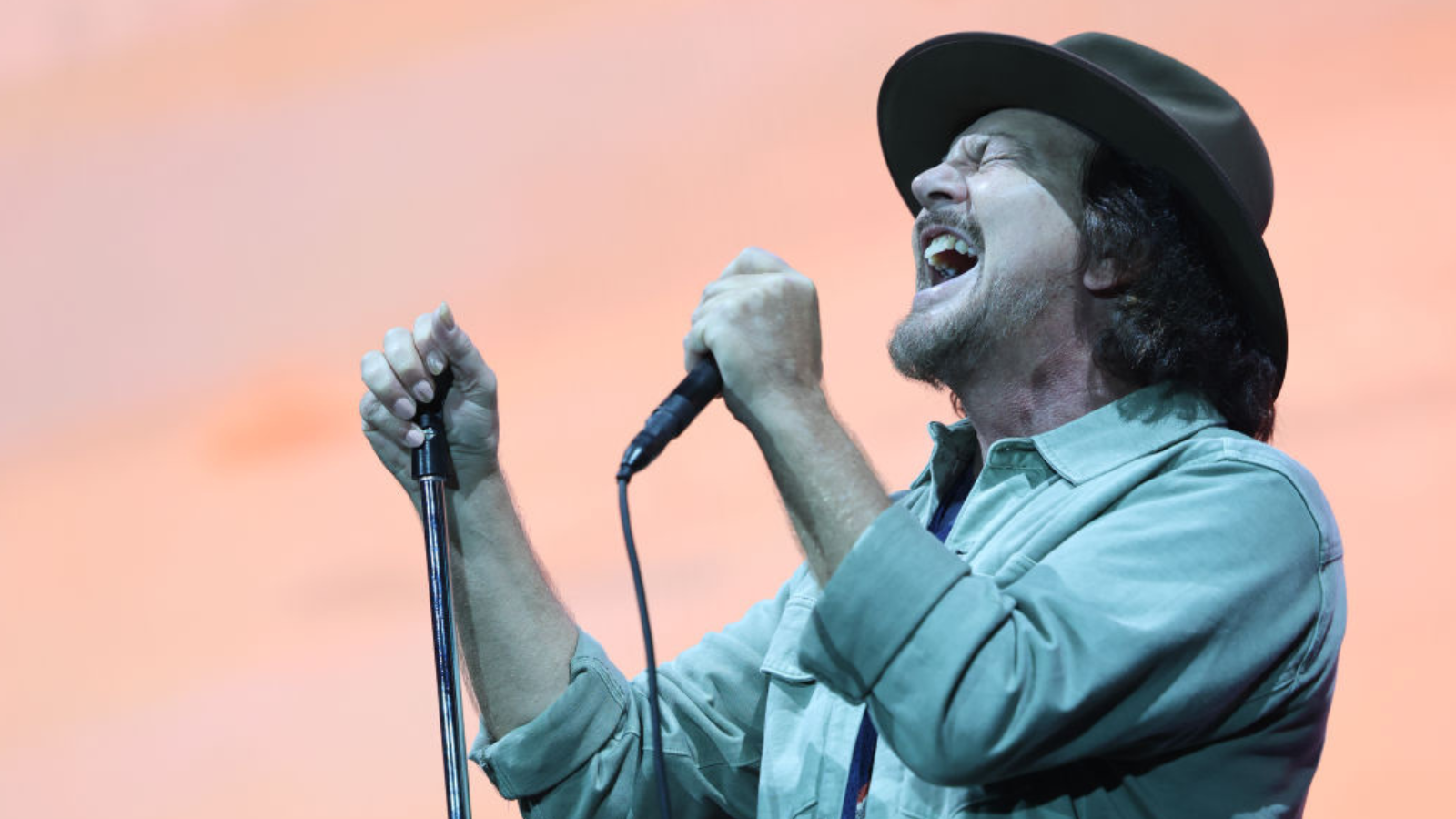
Feature Photo: Dyllan, CC BY 2.0
Nicki Minaj, a trailblazer in the world of hip-hop and pop music, was born Onika Tanya Maraj in Saint James, Port of Spain, Trinidad and Tobago, on December 8, 1982. Raised in Queens, New York, Minaj’s early years were marked by challenges, but these experiences shaped the fierce persona and dynamic artistry that would later define her career. Before her meteoric rise to stardom, Minaj attended LaGuardia High School of Music & Art and Performing Arts, where she nurtured her passion for performance. Her determination and raw talent soon led her to the spotlight, where she has remained a commanding presence for over a decade.
Minaj’s entry into the music industry came through the underground mixtape scene, with early releases like Playtime Is Over (2007) and Sucka Free (2008), which showcased her sharp lyricism and versatile flow. These projects caught the attention of rapper Lil Wayne, who signed her to his Young Money Entertainment label in 2009. Her feature on Young Money’s We Are Young Money compilation album, particularly the single “BedRock,” introduced her to a broader audience and set the stage for her groundbreaking solo career.
Her debut album, Pink Friday (2010), was a commercial and critical triumph, debuting at number two on the Billboard 200 and later reaching platinum certification. Featuring hits like “Super Bass,” “Moment 4 Life,” and “Your Love,” the album solidified Minaj’s status as a force in the music industry. Her sophomore effort, Pink Friday: Roman Reloaded (2012), expanded her sound with chart-topping tracks like “Starships” and “Pound the Alarm,” blending hip-hop with pop influences and showcasing her ability to dominate multiple genres.
Minaj has released four studio albums to date, with The Pinkprint (2014) and Queen (2018) further cementing her legacy. The Pinkprint, in particular, was praised for its introspective themes and hits like “Anaconda” and “Only,” earning critical acclaim and multiple award nominations. Meanwhile, Queen highlighted her versatility and included fan favorites like “Chun-Li” and “Barbie Dreams.” Across her discography, Minaj has delivered a record-breaking number of Billboard Hot 100 entries, becoming the first female rapper to achieve such a feat and earning numerous accolades, including multiple BET Awards, American Music Awards, and MTV Video Music Awards.
Minaj’s influence extends far beyond her music. Her animated persona, colorful fashion choices, and dynamic alter egos have left an indelible mark on pop culture. She has collaborated with some of the biggest names in the industry, including Ariana Grande, Beyoncé, and Drake, further solidifying her status as a global icon. Additionally, her guest features on tracks like “Bang Bang” and “Monster” have become legendary, showcasing her ability to elevate any song she contributes to.
Outside of her music, Minaj has made significant contributions to various causes and industries. She has ventured into acting, appearing in films like The Other Woman (2014) and Barbershop: The Next Cut (2016). Her philanthropy is notable as well, including her work to support education through scholarships for students and her contributions to disaster relief efforts. Minaj’s influence in empowering women in hip-hop and breaking barriers in a traditionally male-dominated industry has earned her a loyal fanbase and widespread admiration.
(#-A)
“1, 2, 3, 4” † – Non-album single (2009)
“2 Lit 2 Late Interlude” – Queen (2018)
“5 Star” (Remix) † – Live from the Kitchen by Yo Gotti (2009)
“5 Star” – Dedication 6 by Lil Wayne (2017)
“40 Bars” – Playtime Is Over (2007)
“2012 (It Ain’t the End)” † – Hit the Lights by Jay Sean (2010)
“All Eyes on You” † – Dreams Worth More Than Money by Meek Mill (2015)
“All I Do Is Win” (Remix) # – Victory by DJ Khaled (2010)
“All Things Go” # – The Pinkprint (2014)
“Always Love You” – The Lockdown Sessions by Elton John, Young Thug, and Nicki Minaj (2021)
“Anaconda” † – The Pinkprint (2014)
“Animales” – Formula, Vol. 2 by Romeo Santos (2014)
“Anybody” † – Hear No Evil by Young Thug (2018)
“Automatic” – Pink Friday: Roman Reloaded (2012)
(B)
“Back Together” † – Non-album single by Robin Thicke (2015)
“Bad for You” – Dreams Worth More Than Money by Meek Mill (2015)
“Bad to You” – Charlie’s Angels: Original Motion Picture Soundtrack (2019)
“Ball for Me” † – Beerbongs and Bentleys by Post Malone (2018)
“Bang Bang” † – Sweet Talker by Jessie J and My Everything (Deluxe edition) by Ariana Grande (2014)
“BAPS” † – The One by Trina (2019)
“Barbie Dreams” † – Queen (2018)
“Barbie Drip” (Remix) – Non-album single (2019)
“Barbie Goin Bad” (Remix) – Non-album single (2019)
“Barbie Tingz” † – Queen (Target and Japanese exclusive version) (2018)
“Barbie World” † – Barbie the Album by Nicki Minaj and Ice Spice with Aqua (2023)
“Beam Me Up Scotty” – Beam Me Up Scotty (2009)
“Beautiful Sinner” – Pink Friday: Roman Reloaded (2012)
“Beauty and a Beat” † – Believe by Justin Bieber (2012)
“Bed” † – Queen (2018)
“Bed of Lies” † – The Pinkprint (2014)
“BedRock” † – We Are Young Money by Young Money (2009)
“Beez in the Trap” † – Pink Friday: Roman Reloaded (2012)
“Best I Ever Had” (Remix) – Beam Me Up Scotty (2009)
“Big Bank” † – Stay Dangerous by YG (2018)
“Big Barbie” – Unreleased
“Big Daddy” – The Pinkprint (Deluxe version) (2014)
“Bitch I’m Madonna” † – Rebel Heart by Madonna (2015)
“Black Barbies” # – Non-album single (2016)
“Blazin’” – Pink Friday (2010)
“Blick Blick” † – Non-album single by Coi Leray & Nicki Minaj (2022)
“Blow Ya Mind” – Pink Friday (Deluxe version) (2010)
“Bom Bidi Bom” – Fifty Shades Darker: Original Motion Picture Soundtrack by Nick Jonas and Nicki Minaj (2017)
“Boo’d Up” (Remix) † – Non-album single by Ella Mai, Nicki Minaj, and Quavo (2018)
“Born Stunna” (Remix) † – Non-album single by Birdman (2012)
“Boss Ass Bitch” (Remix) † – Beam Me Up Scotty (2021 reissue) (2013)
“Bottoms Up” † – Passion, Pain & Pleasure by Trey Songz (2010)
“Boyz” † – Non-album single by Jesy Nelson (2021)
“The Boys” † – Pink Friday: Roman Reloaded – The Re-Up by Nicki Minaj and Cassie (2012)
“Bussin” † – Non-album single by Nicki Minaj & Lil Baby (2022)
“Bust Down Barbiana” (Remix) – Non-album single (2019)
“Buy a Heart” – The Pinkprint (2014)
(C)
“Can Anybody Hear Me?” – Beam Me Up Scotty (2009)
“Can’t Stop, Won’t Stop” – Playtime Is Over and Da Drought 3 by Lil Wayne and Nicki Minaj (2007)
“Catch Me” – Pink Friday (Bonus track) (2010)
“Champion” – Pink Friday: Roman Reloaded (2012)
“Changed It” – Non-album single (2017)
“Check It Out” – Pink Friday (2010)
“Check It Out” (Special Mix) – Non-album single (2010)
“Chi-Raq” – Beam Me Up Scotty (2021 reissue) (2014)
“Chun-Li” – Queen (2018)
“Chun Swae” – Queen (2018)
“Clappers” – The Gifted by Wale (2013)
“Click Clack” – Playtime Is Over (2007)
“Coca Coca” – Burrrprint (2) HD by Gucci Mane (2010)
“Coco Chanel” – Queen (2018)
“Come on a Cone” – Pink Friday: Roman Reloaded (2012)
“Come See About Me” – Queen (2018)
“The Creep” – Turtleneck & Chain by The Lonely Island (2011)
“Crocodile Teeth” – Beam Me Up Scotty (2021 reissue) (2021)
“The Crying Game” – The Pinkprint (2014)
(D)
“Dance (A$$)” (Remix) – Finally Famous by Big Sean (2011)
“Dang a Lang” – Amazin’ by Trina (2010)
“Dark Fantasy” – My Beautiful Dark Twisted Fantasy by Kanye West (2010)
“Dark Side of the Moon” – Tha Carter V by Lil Wayne (2018)
“Dear Old Nicki” – Pink Friday (2010)
“Did It On’em” – Pink Friday (2010)
“Dilly Dally” – Playtime Is Over (2007)
“Dip” (Alternate version) – Legendary (Deluxe edition) by Tyga and Nicki Minaj (2018)
“Do We Have a Problem?” – Non-album single (2022)
“Don’t Hurt Me” – Cold Summer by DJ Mustard, Nicki Minaj, and Jeremih (2016)
“Dope Dealer” – Dreamchasers 3 by Meek Mill (2013)
“Down in the DM” (Remix) – The Art of Hustle (Deluxe version) by Yo Gotti (2015)
“Do You Mind” – Major Key by DJ Khaled (2016)
“Dreams ’07” – Playtime Is Over (2007)
“Dumb Blonde” – Head Above Water by Avril Lavigne (2019)
(E-F)
“Ease Up” – Playtime Is Over (2007)
“Easy” – Beam Me Up Scotty (2009)
“Encore ’07” – Playtime Is Over (2007)
“Entertainment 2.0” – Full Frequency by Sean Paul (2013)
“Envy” – Beam Me Up Scotty (2009)
“Expensive” – Featuring Ty Dolla $ign by Ty Dolla $ign (2020)
“Extravagant” – Love Songs 4 the Streets 2 by Lil Durk (2019)
“Familia” – Spider-Man: Into the Spider-Verse (2018)
“Favorite” – The Pinkprint (2014)
“Feeling Myself” – The Pinkprint (2014)
“Fefe” – Dummy Boy by 6ix9ine (2018)
“Fendi” – Non-album single (2019)
“Finale” – We Are Young Money (2009)
“Fireball” – Non-album single by Willow Smith (2011)
“Fire Burns” – Pink Friday: Roman Reloaded (2012)
“Flawless Remix” – Beyoncé: Platinum Edition (2014)
“Fly” – Pink Friday (2010)
“For the Love of New York” – Hall of Fame by Polo G (2021)
“For the Money” – There Is No Competition 2: The Funeral Service by Fabolous and Nicki Minaj (2010)
“Four Door Aventador” – The Pinkprint (2014)
“Fractions” – Beam Me Up Scotty (2021 reissue) (2021)
“Freaks” – Excuse My French by French Montana (2013)
“Freedom” – Pink Friday: Roman Reloaded – The Re-Up (2012)
“Freestyle” – Playtime Is Over (2007)
“Froze” – DC4 by Meek Mill (2016)
“Fu*k da Bullshit” – We Are Young Money (2009)
(G)
“Ganja Burn” – Queen (2018)
“Get It All” – The Inkwell by Sean Garrett (2010)
“Get Like Me” – M.O. by Nelly (2013)
“Get Low” – Triple F Life: Fans, Friends & Family by Waka Flocka Flame (2012)
“Get on Your Knees” – The Pinkprint (2014)
“Girl on Fire” (Inferno version) – Girl on Fire by Alicia Keys (2012)
“Girls Fall Like Dominoes” – Pink Friday (Bonus track) (2010)
“Give It All to Me” – Suffering from Success by Mavado (2013)
“Give Me All Your Luvin’” – MDNA by Madonna (2012)
“Goodbye” – 7 by Jason Derulo and David Guetta (2018)
“Good Form” – Queen (2018)
“Good Form” (Remix) – Queen (Deluxe edition) (2018)
“Gotta Go Hard” – Beam Me Up Scotty (2009)
“Grand Piano” – The Pinkprint (2014)
“Gun Shot” – Pink Friday: Roman Reloaded (2012)
(H)
“Hard White” – Queen (2018)
“Haterade” – The Appeal: Georgia’s Most Wanted by Gucci Mane (2010)
“Hello Good Morning” (Remix) – Non-album single by Diddy – Dirty Money (2010)
“Hell Yeah” – Pink Friday: Roman Reloaded – The Re-Up (2012)
“Here I Am” – Pink Friday (2010)
“Hey Mama” – Listen by David Guetta (2015)
“High School” – Pink Friday: Roman Reloaded – The Re-Up (2012)
“The Hills” (Remix) – The Hills Remixes by The Weeknd (2015)
“Holy Ground” – A Better Time by Davido (2020)
“Hood Story” – Playtime Is Over (2007)
“Hot Girl Summer” – Non-album single by Megan Thee Stallion (2019)
“HOV Lane” – Pink Friday: Roman Reloaded
(I-J)
“I Ain’t Thru” – Calling All Hearts by Keyshia Cole (2010)
“I Am Your Leader” – Pink Friday: Roman Reloaded (2012)
“I B on Dat” – Dreamchasers 3 by Meek Mill (2013)
“I Can’t Even Lie” – Grateful by DJ Khaled (2017)
“I Don’t Give a” – MDNA by Madonna (2012)
“I Endorse These Strippers” – Pink Friday: Roman Reloaded – The Re-Up (2012)
“I Get Crazy” – Beam Me Up Scotty (2009)
“I Lied” – The Pinkprint (2014)
“I Luv Dem Strippers” – Based on a T.R.U. Story by 2 Chainz (2012)
“I Wanna Be with You” – Suffering from Success by DJ Khaled (2013)
“I’m Cumin” – Playtime Is Over (2007)
“I’m Getting Ready” – Heart. Passion. Pursuit. by Tasha Cobbs Leonard (2017)
“I’m Legit” – Pink Friday: Roman Reloaded – The Re-Up (2012)
“I’m Out” – Ciara by Ciara (2013)
“I’m the Best” – Pink Friday (2010)
“Idol” – Love Yourself: Answer by BTS (2018)
“In My Head” (Remix) – Jason Derulo (Special Edition) – EP (2011)
“Inspirations Outro” – Queen (2018)
“Intro” – Beam Me Up Scotty (2009)
“iPHONE” – Kirk by DaBaby (2019)
“Itty Bitty Piggy” – Beam Me Up Scotty (2009)
“Jump Off ’07” – Playtime Is Over (2007)
(K-L)
“Keys Under Palm Trees” – Beam Me Up Scotty (2009)
“Kill Da DJ” – Beam Me Up Scotty (2009)
“Kissing Girls” – Writing on the Wall (2009)
“Kissing Strangers” – DNCE (2017)
“Knockout” – Rebirth (2010)
“Krippy Kush” (Remix) – Non-album single (2017)
“Last Chance” – Pink Friday (2010)
“Lay It Down” – I Am Not a Human Being II (2013)
“Letcha Go” – Playtime Is Over (2007)
“Letting Go (Dutty Love)” – Non-album single (2010)
“The Light Is Coming” – Sweetener (2018)
“Light My Body Up” – Non-album single (2017)
“Like a Star” – Non-album single (2016)
“Likkle Miss” (Remix) – Queen Radio: Volume 1 (2022)
“Lil Freak” – Raymond v. Raymond (2010)
“Livin’ It Up” – Ciara (2013)
“LLC” – Queen (2018)
“Lollipop Luxury” – Beauty Killer (2011)
“Lookin Ass” – Young Money: Rise of an Empire (2014)
“Love In The Way” – Non-album single (2022)
“Love More” – X (2013)
“Low” – Non-album single (2014)
(M)
“Majesty” – Queen (2018)
“Make Love” – Mr. Davis by Gucci Mane (2017)
“Make Me Proud” – Take Care by Drake (2011)
“Mama” – Dummy Boy by 6ix9ine (2018)
“Marilyn Monroe” – Pink Friday: Roman Reloaded (2012)
“Masquerade” – Pink Friday: Roman Reloaded (Deluxe version) (2012)
“Massive Attack” – Non-album single (2010)
“Megatron” – Non-album single (2019)
“Miami” – Queen (2018)
“Milf” – Hall of Fame by Big Sean (2013)
“Moment 4 Life” – Pink Friday (2010)
“Mona Lisa” – The Pinkprint (Deluxe version) (2014)
“Monster” – My Beautiful Dark Twisted Fantasy by Kanye West (2010)
“MotorSport” – Culture II by Migos, Nicki Minaj, and Cardi B (2017)
“Move Ya Hips” – Floor Seats II by A$AP Ferg (2020)
“Muny” – Pink Friday (Deluxe version) (2010)
“Muthafu*ka Up” – Careless World: Rise of the Last King by Tyga (2012)
“My Chick Bad” – Battle of the Sexes by Ludacris (2010)
“My Nigga” (Remix) – My Krazy Life (Deluxe edition) by YG (2014)
“Nice to Meet Ya” – Treat Myself by Meghan Trainor (2020)
“Nicki Minaj Speaks” – Beam Me Up Scotty (2009)
“Nicki Minaj Speaks #2” – Beam Me Up Scotty (2009)
“Nicki Minaj Speaks #3” – Beam Me Up Scotty (2009)
“N.I.G.G.A.S.” – Playtime Is Over (2007)
“The Night Is Still Young” – The Pinkprint (2015)
“Nip Tuck” – Queen (2018)
“Nobody” – Grateful by DJ Khaled (2017)
“No Broken Hearts” – Non-album single by Bebe Rexha (2016)
“No Candle No Light” – Icarus Falls by ZAYN (2018)
(O-R)
“Oh My Gawd” – Music Is the Weapon by Mr Eazi and Major Lazer (2020)
“Only” – The Pinkprint (2014)
“Out of My Mind” – Strange Clouds by B.o.B (2012)
“Pills N Potions” – The Pinkprint (2014)
“Plain Jane” (Remix) – Non-album single (2017)
“Playtime Is Over” – Playtime Is Over (2007)
“Poke It Out” – Die Lit by Playboi Carti (2018)
“Pound the Alarm” – Pink Friday: Roman Reloaded (2012)
“The Power of Love” (Miura Keys Main Mix) – Non-album single (2019)
“Put You in a Room” – The Pinkprint (Deluxe version) (2014)
“Raining Men” – Loud by Rihanna (2010)
“Rake It Up” – Gotti Made-It by Yo Gotti and Mike WiLL Made-It (2017)
“Realize” – Pretty Girls Like Trap Music by 2 Chainz (2017)
“Regret in Your Tears” – Non-album single (2017)
“Regular Degular” – Queen (Target exclusive version) (2018)
“Rich Sex” – Queen (2018)
“Right by My Side” – Pink Friday: Roman Reloaded (2012)
“Right Thru Me” – Pink Friday (2010)
“Roger That” – We Are Young Money by Young Money (2009)
“Roman Holiday” – Pink Friday: Roman Reloaded (2012)
“Roman in Moscow” – Non-album single (2011)
“Roman Reloaded” – Pink Friday: Roman Reloaded (2012)
“Roman’s Revenge” – Pink Friday (2010)
“Run & Hide” – Queen (2018)
“Run Up” – Music Is the Weapon by Major Lazer (2017)
“Runnin” – Creed II: The Album by Mike WiLL Made-It, A$AP Rocky, A$AP Ferg, and Nicki Minaj (2018)
(S)
“Save Me” – Pink Friday (2010)
“Seeing Green” – Beam Me Up Scotty (2021 reissue) (2021)
“Senile” – Young Money: Rise of an Empire by Young Money (2014)
“Sex In Crazy Places” – The State vs. Radric Davis by Gucci Mane (2009)
“Sex in the Lounge” – Pink Friday: Roman Reloaded (2012)
“Shakin’ It 4 Daddy” – Sex Therapy: The Session by Robin Thicke (2011)
“Shanghai” – The Pinkprint (Deluxe version) (2014)
“She Came to Give It to You” – Hard II Love (Japanese edition) by Usher (2014)
“She For Keeps” – Quality Control: Control the Streets Volume 1 by Quality Control, Quavo, and Nicki Minaj (2017)
“Shopaholic” – Beam Me Up Scotty (2009)
“Side to Side” – Dangerous Woman by Ariana Grande (2016)
“Silly” – Beam Me Up Scotty (2009)
“Sir” – Queen (2018)
“Skrt On Me” – Funk Wav Bounces Vol. 1 by Calvin Harris (2017)
“Slide Around” – The Big Day by Chance the Rapper (2019)
“Slumber Party” – Beam Me Up Scotty (2009)
“So Bad” – 1st of the Month Vol. 2 by Cam’ron (2014)
“Somebody Else” – Non-album single by Mario (2013)
“Starships” – Pink Friday: Roman Reloaded (2012)
“Sticks In My Bun” – Playtime Is Over (2007)
“Still I Rise” – Beam Me Up Scotty (2009)
“Streets Is Watchin’” – We Are Young Money by Young Money (2009)
“Stupid Hoe” – Pink Friday: Roman Reloaded (2012)
“Sunshine ’07” – Playtime Is Over (2007)
“Super Bass” – Pink Friday (Deluxe version) (2010)
“Super Freaky Girl” – Pink Friday 2 (2022)
“Swalla” – 2Sides by Jason Derulo (2017)
“Swish Swish” – Witness by Katy Perry (2017)
(T)
“Take It to the Head” – Kiss the Ring by DJ Khaled (2012)
“Tapout” – Rich Gang by Rich Gang (2013)
“Thought I Knew You” – Queen (2018)
“Throw Sum Mo” – SremmLife by Rae Sremmurd (2014)
“Till the World Ends (The Femme Fatale Remix)” – Non-album single by Britney Spears (2011)
“Tonight I’m Getting Over You” (Remix) – Non-album single by Carly Rae Jepsen (2013)
“Touch Down” (Remix) – Non-album single by Stylo G and The FaNaTiX (2018)
“Touchin, Lovin” – Trigga by Trey Songz (2014)
“Transformer” – Wrld on Drugs by Future (2018)
“Trini Dem Girls” – The Pinkprint (2014)
“Trollz” – TattleTales by 6ix9ine (2020)
“True Colors” – Blacc Hollywood by Wiz Khalifa (2014)
“Truffle Butter” – The Pinkprint (2014)
“Turn Me On” – Nothing but the Beat by David Guetta and Pink Friday: Roman Reloaded (Deluxe version) (2011)
“Tusa” – KG0516 by KAROL G and Nicki Minaj (2019)
“#Twerkit” – Non-album single by Busta Rhymes (2013)
(U-Z)
“Up All Night” – Thank Me Later by Drake (2010)
“Up in Flames” – Pink Friday: Roman Reloaded – The Re-Up (2012)
“Up Out My Face” (Remix) – Angels Advocate by Mariah Carey (2010)
“Va Va Voom” – Pink Friday: Roman Reloaded (Deluxe version) and Pink Friday: Roman Reloaded – The Re-Up (2012)
“Wamables” – The Pinkprint (Deluxe version) (2014)
“Want Some More” – The Pinkprint (2014)
“Warning” – Playtime Is Over (2007)
“Wave Ya Hand” – Pink Friday (Bonus track) (2010)
“The Way Life Goes” (Remix) – Non-album single by Lil Uzi Vert (2017)
“We Go Up” – Non-album single by Nicki Minaj and Fivio Foreign (2022)
“Welcome to the Party” (Remix) – Meet the Woo (Deluxe edition) by Pop Smoke (2019)
“What That Speed Bout!?” – Non-album single by Mike WiLL Made-It, Nicki Minaj, and YoungBoy Never Broke Again (2020)
“What’s Wrong With Them” – I Am Not a Human Being by Lil Wayne (2010)
“Where Them Girls At” – Nothing but the Beat by David Guetta (2011)
“Whip It” – Pink Friday: Roman Reloaded (2012)
“Whole Lotta Choppas” (Remix) – Non-album single by Sada Baby (2020)
“Whole Lotta Money” (Remix) – For Certain (Deluxe version) by Bia and Nicki Minaj (2021)
“Win Again” – The Pinkprint (Deluxe version) (2014)
“Wobble Up” – Indigo by Chris Brown (2019)
“Woman Like Me” – LM5 by Little Mix (2018)
“Woohoo” – Bionic by Christina Aguilera (2010)
“Wuchoo Know” – Playtime Is Over (2007)
“Yasss Bish” – Non-album single by Nicki Minaj and Soulja Boy (2014)
“Yikes” – Non-album single (2020)
“YM Salute” – I Am Not a Human Being by Lil Wayne (2010)
“You Already Know” – Double Dutchess by Fergie (2017)
“You da Baddest” – Hndrxx by Future (2017)
“Young Forever” – Pink Friday: Roman Reloaded (2012)
“Your Love” – Pink Friday (2010)
“You the Boss” – Non-album single by Rick Ross (2011)
“Y.U. Mad” – Bigga Than Life by Birdman (2011)
“Zanies and Fools” – The Big Day by Chance the Rapper (2019)
Check out our fantastic and entertaining Nicki Minaj articles, detailing in-depth the band’s albums, songs, band members, and more…all on ClassicRockHistory.com
Complete List of Nicki Minaj Albums And Discography
Top 10 Nicki Minaj Songs
25 Best Rappers Of All Time
Read More: Artists’ Interviews Directory At ClassicRockHistory.com
Read More: Classic Rock Bands List And Directory
Complete List Of Nicki Minaj Songs From A to Z article published on Classic RockHistory.com© 2025






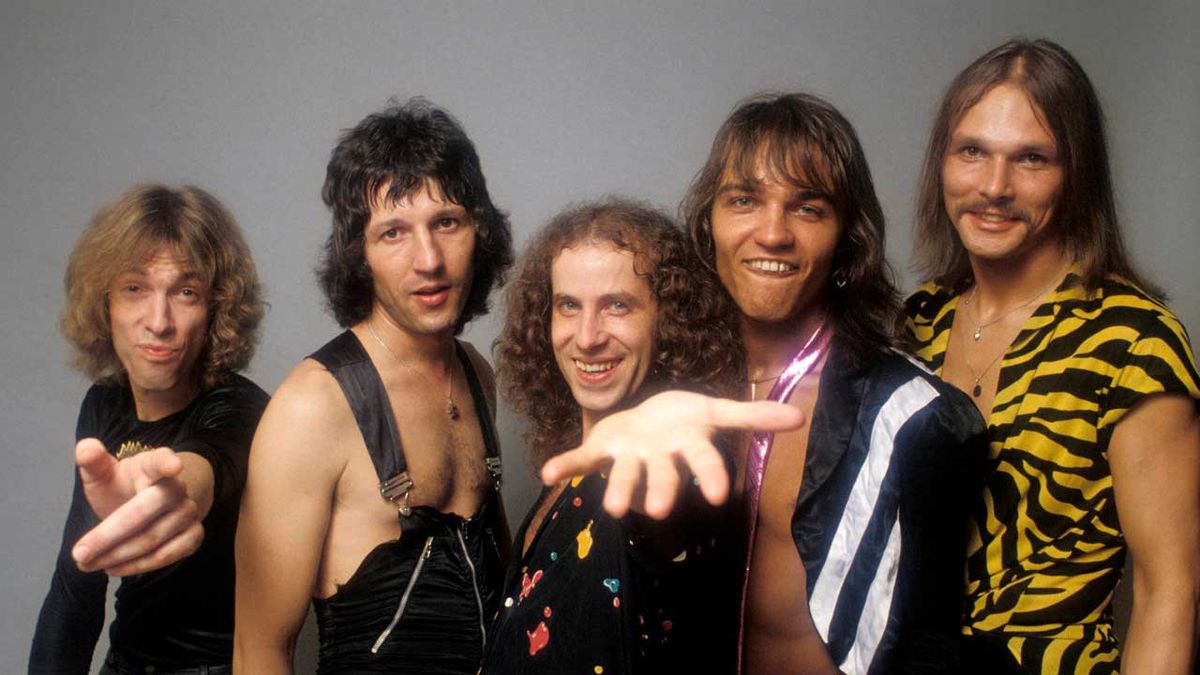

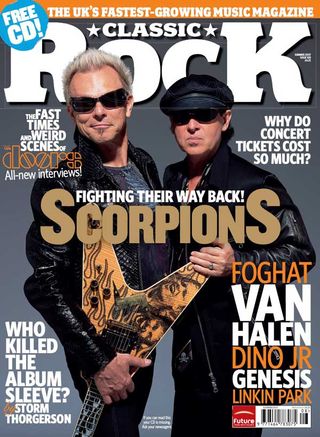
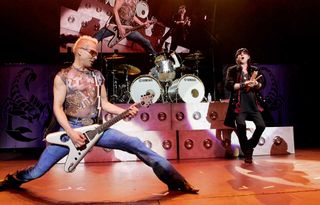

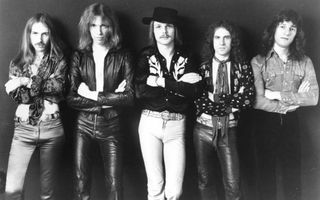



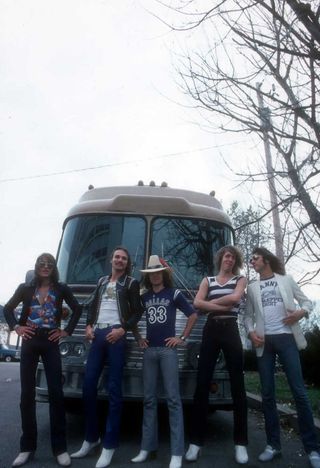


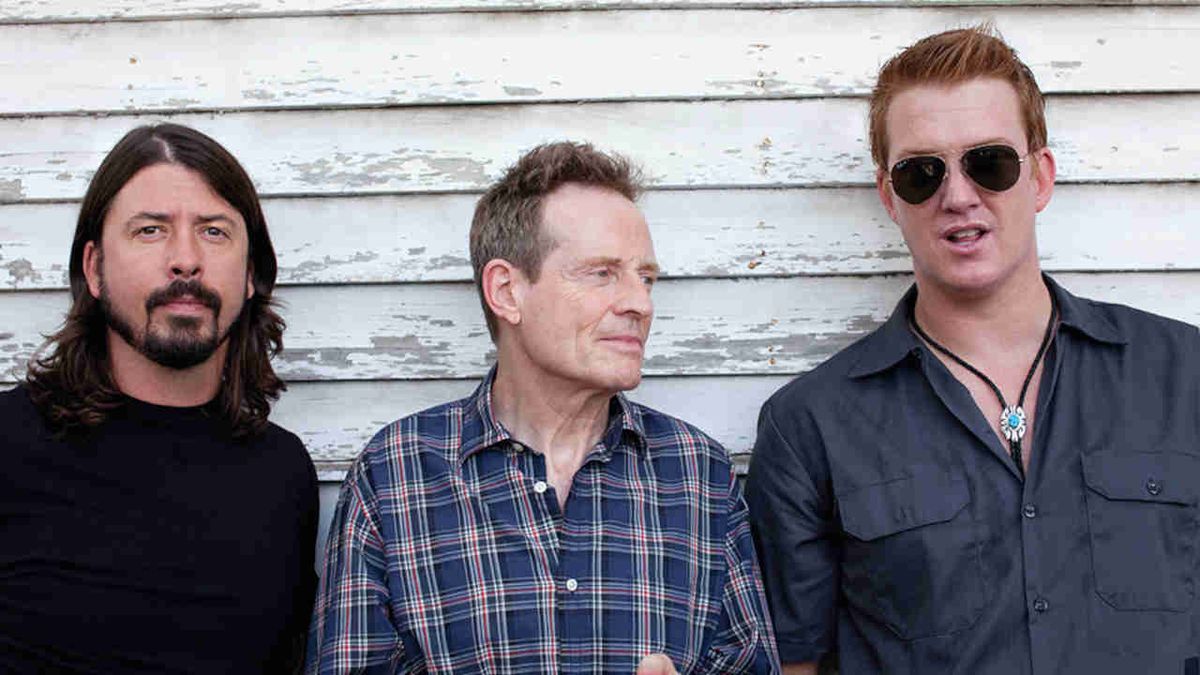

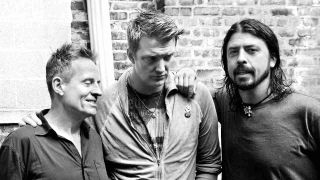

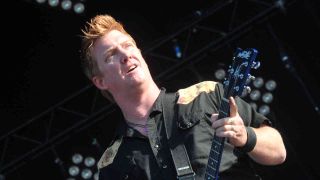




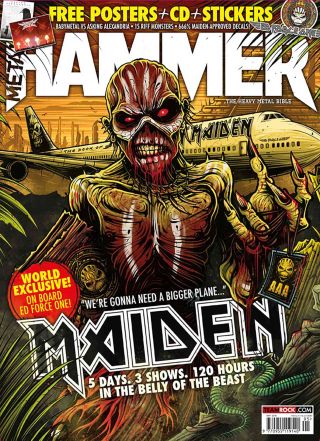


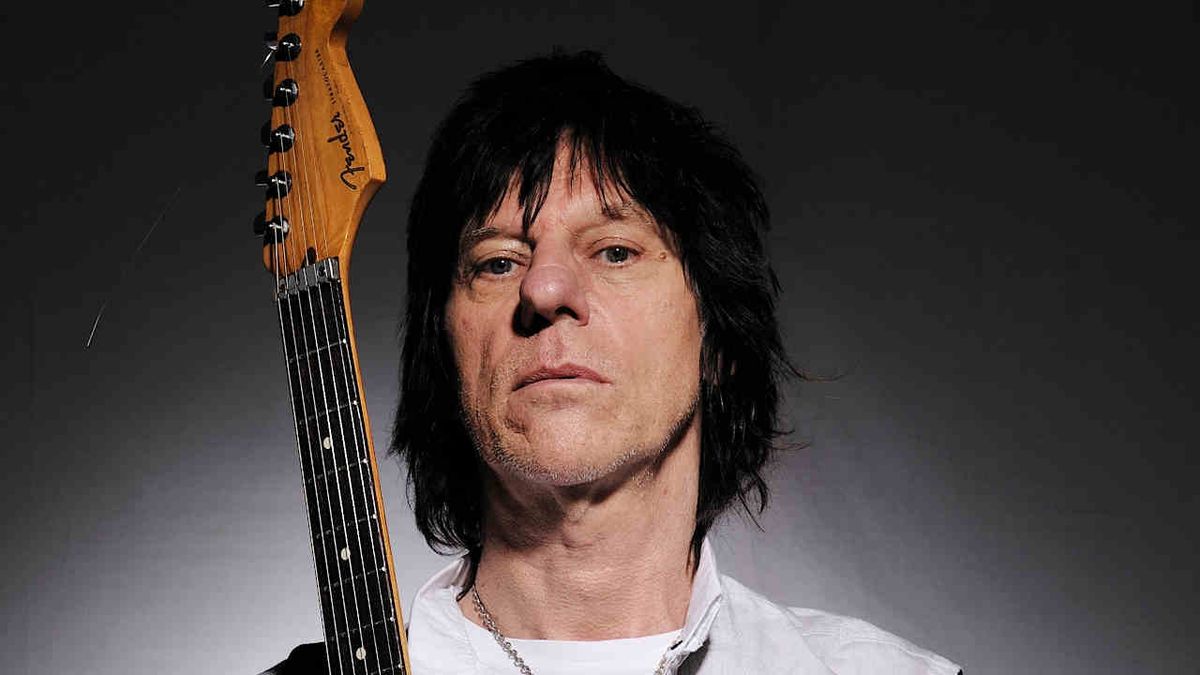
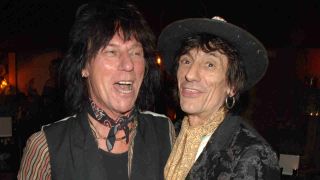
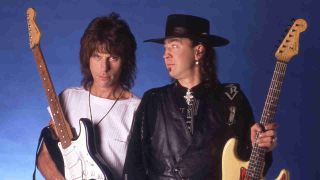
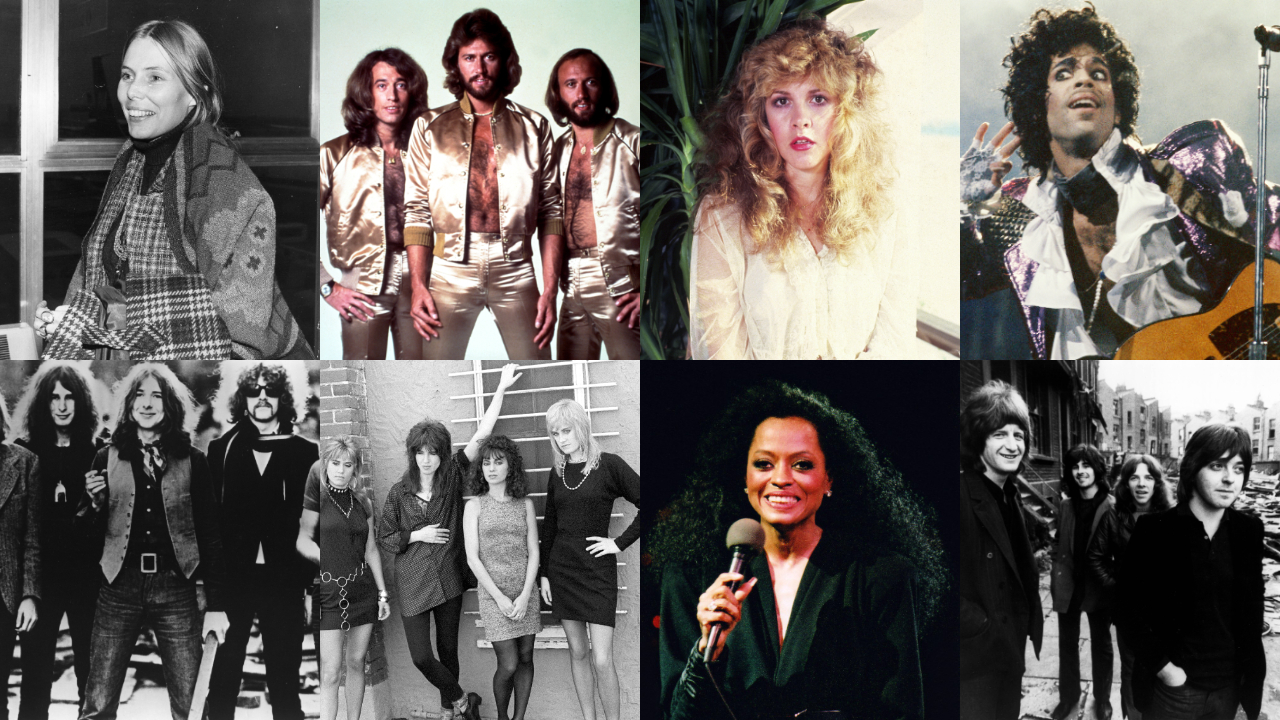
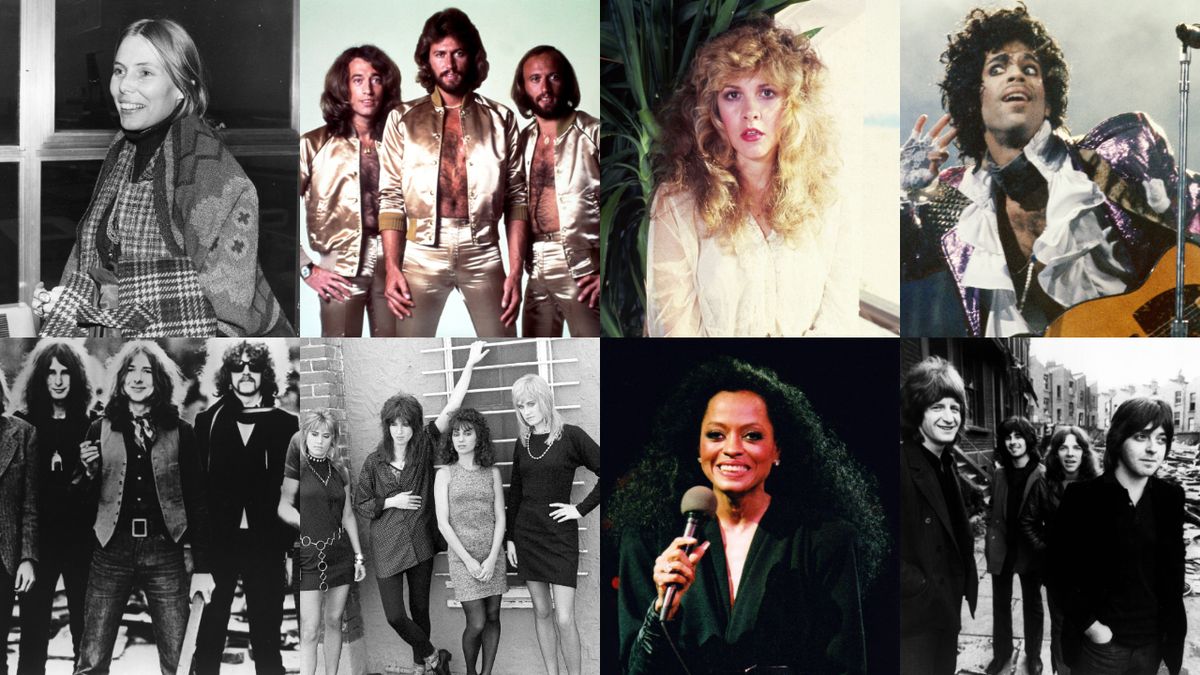



![Stevie Nicks - Stop Draggin' My Heart Around (Official Video) [HD Remaster] - YouTube](https://img.youtube.com/vi/H5i7j0VhEHw/maxresdefault.jpg)
![Madonna - Bedtime Story (Official Video) [HD] - YouTube](https://img.youtube.com/vi/CSaFgAwnRSc/maxresdefault.jpg)



